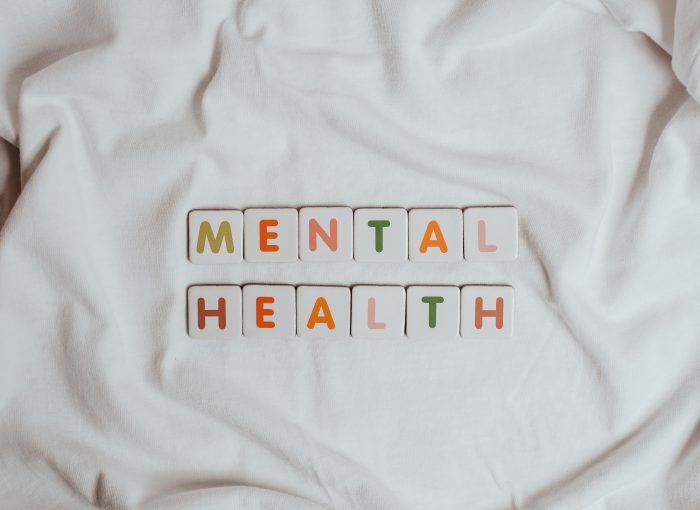By Olivia Solomon
Mental health. As Gen-Z students, we hear it all. We know we’re supposed to be taking care of ourselves; we know it’s ok to not be ok. But even though we know and may encourage our friends and loved ones to practice this, when’s the last time we actually lived that. We are the rat-race generation that was told they have “gifted minds” as children, inevitably pushed into upper-level courses beyond our capacity, and now hold ourselves to an impossible standard where failure is simply not an acceptable option.
So, we push ourselves past breaking points ignoring our limits. I know this because I’m guilty of it. We get to college and continue running on this fast track to nowhere. There have been times, more than I’d like to admit, where I contemplate dropping out and selling a nonvital organ instead of getting a job. Sometimes I just want to disappear and leave all the stress and pressure behind because maybe being a productive member of society, whatever that means, is too stressful for me and I just wasn’t cut out for it. I know I’m not alone in this thought.
According to the Harvard Political Review, “suicide is the second leading cause of death for college-age students.” Similarly, a report at Emory University showed that 11.1% of students reported having suicidal ideation within the past month and 16.5% of students attempted suicide or had a self-injurious event at least once in their lifetime. This statistic should not be taken lightly. Suicide and suicidal thoughts seem so far away and out there until you are stuck in the middle of them.
As a high school student, I didn’t think I would make it to graduation day. The years of constant comparison to others and pushing myself to an impossible standard of perfection had culminated in no longer wanting to live. I used to stay up, counting how many pills of my medication it would take to take me out of this world. But I didn’t want to feel this way. I didn’t want to put the people I loved through that. I just couldn’t get those thoughts out of my head. I couldn’t get my inner voice to stop telling me I was not good enough, that the world was too stressful to handle so why even bother?
Transitioning into adulthood is not easy. That, I think every single college-aged student and young adult can attest to. Like baby birds pushed out of the nest, we hope and assume we will fly. For the most part, we do, eventually. Everyone has their own pace. This concept of going out on your own and doing everything you wanted is tough. We build up the dream of college and what our life will look like based on movies and this perfectly curated reality that doesn’t exist. Living in today’s world with poverty rates skyrocketing, housing markets impossible to buy into, the current climate crisis, and jobs paying unlivable wages that we could only dream of getting, the state of our mental health is no surprise. The world is not a very calming place to be thrown into.
Growing up during a national mental health crisis, it makes sense that 91% of Generation Z has symptoms of mental health disorders according to the Associated Press. This has come to fruition after decades of denying and stigmatizing the reality of mental health. If you break a leg, you don’t just walk it off. So why do we expect someone with a chemical imbalance in their brain that causes them to have depression or anxiety to just keep on going with treatment or acknowledgment?
So why do we expect someone with a chemical imbalance in their brain that causes them to have depression or anxiety to just keep on going with treatment or acknowledgment?
Looking further into the mental health crisis facing our generation, finding a mental health professional that a person feels comfortable with can be difficult. Let alone finding an affordable mental health professional that takes your insurance. When a person is already suffering, navigating this process can seem almost impossible. This is often why too many people go without the help they need. Looking back to the survey statistic of 11.1% of college students reporting suicidal ideation in the past month, that is over one in 10. That means if you look at 10 of your friends, at least one of them has thought of ending their own life in the past month. That friend may even be you.
According to the UCF Police Department, they receive calls at least every two weeks of students in distress at the top of parking garages contemplating taking their own life. UCFPD put up signs stating “You are not alone” with emergency help numbers on them at the top of all garages as a result of this epidemic on campus. There is help, whether we acknowledge it or not. I know it can be hard to admit that we need or even deserve it.
UCF Counseling and Psychological Services provides free and affordable access to different resources such as therapists, psychiatrists, and group therapy for all UCF students. This is one of the numbers listed on the signs. While these signs are a step in the right direction, this is not enough. We need more mental health professionals available on campus 24/7. While CAPS was created for this purpose, they have weeks-long waiting lists to get an appointment. Students need to be able to get in and see a professional before their issues become unmanageable. We need emergency mental health services to respond to these calls of students at the top of the garage, rather than police officers. Ideally, this would dispatch a mental health professional armed with proper de-escalation tactics to help students, rather than an officer armed with a firearm which can insight fear and trauma responses.
Mental Health Resources:
· UCF Counseling and Psychological Services Hotline: 407-823-2811 (press 5)
· National Suicide Prevention Lifeline: 800-273-8255
· UCF Student Care Services: 407-823-5607
· UCF Victim Services 24 hours: 407-823-1200
· Orange, Osceola, Seminole, & Brevard County Crisis Hotline: 2-1-1






